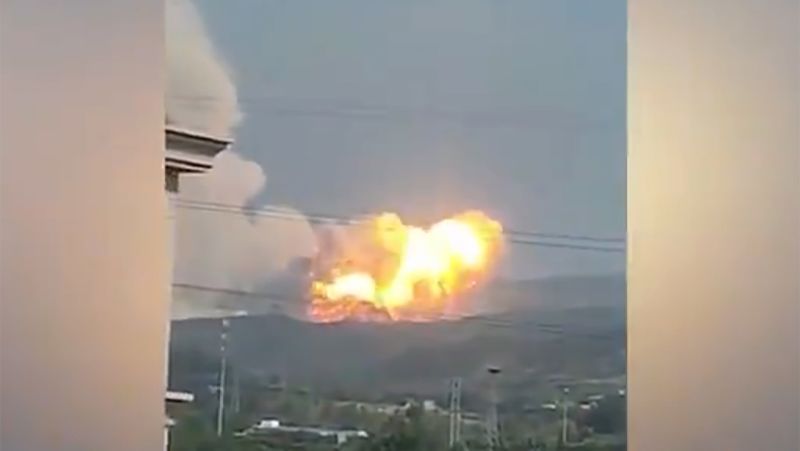
Chinese Rocket Spectacularly Crashes in Accidental Ground Test Launch
The recent incident involving a Chinese rocket crashing after an accidental launch during a ground test has raised concerns and sparked discussions within the aerospace community. Here, we delve into the details of the event and its implications.
The Long March 5B rocket, developed by the China National Space Administration (CNSA), was undergoing testing at the Wenchang Spacecraft Launch Site on China’s Hainan Island. During the test, an anomaly occurred, leading to an unexpected launch and subsequent uncontrolled re-entry into Earth’s atmosphere. The incident raised alarms globally due to the uncertainty surrounding where the debris might fall.
One of the primary concerns following the crash of the Long March 5B rocket was the potential danger posed by the uncontrolled re-entry of the debris. Given the unpredictable nature of such events, there were fears that remnants of the rocket could impact populated areas, posing a significant risk to life and property. The lack of a precise re-entry plan exacerbated these concerns, highlighting the need for stringent protocols to prevent such incidents in the future.
The incident also shed light on the issue of space debris, a growing problem in Earth’s orbit. With the increasing number of satellites, rockets, and other space objects launched into space, the risk of collisions and the generation of debris has become a pressing issue. The crash of the Chinese rocket served as a stark reminder of the importance of responsible space practices and the need for international cooperation to address this issue.
Following the crash, the CNSA faced criticism for the lack of transparency surrounding the event and the uncertainty regarding the trajectory of the debris. Clear communication and coordination with international partners are crucial in such situations to mitigate risks and ensure the safety of all parties involved. Transparency and accountability are key values that must be upheld in the aerospace industry to maintain public trust and confidence.
In response to the incident, discussions have been sparked regarding the need for improved regulations and oversight in the aerospace sector. Robust protocols for testing, launch, and re-entry procedures are essential to prevent similar accidents from occurring in the future. International cooperation and coordination are also vital to establish clear guidelines and standards for the responsible conduct of space activities.
As the aerospace industry continues to advance and expand, the incident involving the Chinese rocket crash serves as a valuable lesson for all stakeholders. By learning from such events and implementing necessary measures, we can strive to ensure the safety and sustainability of space exploration for the benefit of all humankind.
